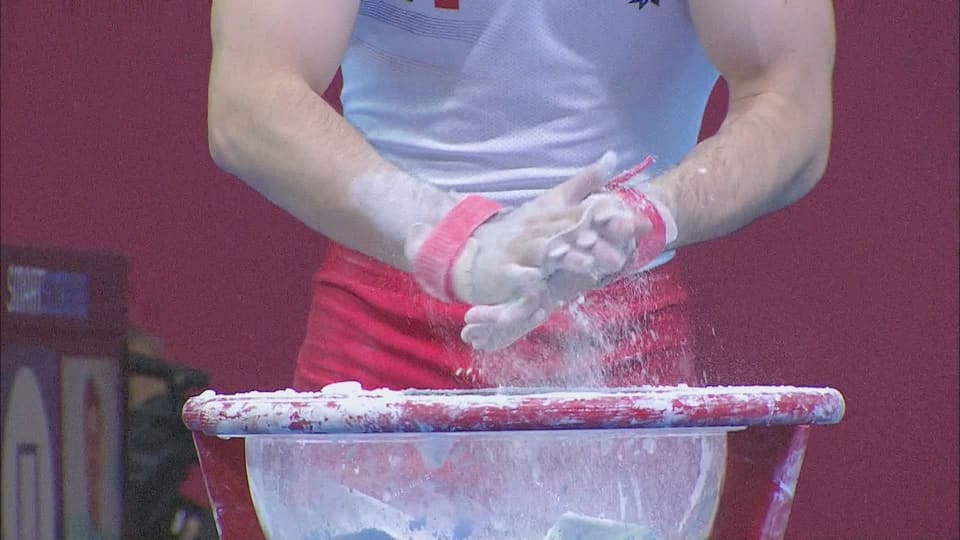Contents
Humiliation, abuse of power and culture of fear in artistic gymnastics: The system is supposed to better protect athletes, but apparently the whole thing is not yet effective. Research by SRF News shows that young gymnasts also leave the sport with physical and mental injuries.
Not only young gymnasts, gymnasts also train a lot for their big dream, for example in the regional performance center in Rümlang, Zurich. The Zurich Gymnastics Association (ZTV) recently fired the head coach. Mid-May 2023, due to “irreconcilable differences”.
According to ZTV, ethical reservations or violations were not the reason. However, as research by SRF News shows, there are indications that not everything was well in the training hall.
Disregarded medical instructions according to Turner
For the first time, a gymnast speaks about the fact that he was humiliated and bullied by the former head coach in Rümlang for a long time. He suffered from depression and panic attacks and had suicidal thoughts. He says medical orders were ignored by the trainer.
“If the doctor gave you a leave of absence for, say, eight weeks, then as soon as the cast was off, you had to go back on the machine – no matter how much pain you were in. It was then said: Don’t be a wimp, anyone can bite their teeth.”
Legend:
Not only young gymnasts, but also young gymnasts leave the sport with physical and mental injuries.
SRF
There is talk of a “culture of fear”, including in a ZTV protocol from autumn 2021. At that time there was an “open exchange” between the Zurich Gymnastics Association and concerned parents. They expressed criticism of the then head coach. The gymnasts were afraid that they would be punished. Some of the gymnasts are afraid that if parents talk to the head coach, this could have negative effects on them.
If you as a parent were critical of something, you knew that your son would have to pay for it at the next training session.
The mother of a gymnast confirmed to SRF News: “If you as a parent were critical of something, then you knew that your son would have to pay for it at the next training session. The head coach subtly let the gymnasts feel this – ignored them or verbally abused them. That’s why everyone was very quiet and didn’t say anything more. He can use his power hard. If he doesn’t like someone, he ignores them.”
Coach denies the allegations
When asked about the allegations, the former head coach wrote that he had never been confronted with ethically incorrect behavior in his many years of professional activity.
And further: “Despite all the performance claims, certain aspects must not be lost sight of. So I always paid attention to the health of the athletes. Both the physical and mental health of an athlete had to take precedence over any performance demands. The fact that I allegedly disregarded medical certificates known to me, demanded inadequate services in the event of an injury and created and maintained a culture of fear, humiliation, bullying and abuse of power are baseless suspicions that are not accurate. I reject such accusations.”
STV with background checks on trainers
As of this month, the fired head coach has been employed by the Swiss Gymnastics Association STV. He fills a newly created position and works as a national selection coach for U12 artistic gymnastics men. The STV apparently had no concerns; when asked by SRF News, it wrote: “When filling coaching positions for the STV, standardized background checks have been carried out at the relevant institutions, namely the Gymnastics Ethics Foundation and the STV Ethics Commission, since the beginning of 2022.”
Swiss Sport Integrity, the national reporting office for ethics violations, or SSI for short, was also involved in this process. For the former head coach, these checks “all had positive results and a green light,” writes the STV. From the STV’s point of view, there was nothing standing in the way of employment.
Several reports received by SSI
Spicy: At SSI there are apparently no proceedings against the former head coach at the moment that should have been reported to the STV. But it is still an issue with SSI. Several reports were received. SSI writes: “The assessment of the facts is currently the subject of clarification.” At such a stage, sports associations do not need to be informed. It remains unclear whether the STV was aware of this.
For Peter G. Kirchschläger, ethics professor at the University of Lucerne, it is clear: “In a situation like this, it is fundamentally important that an association is aware of where it sets its priorities. And he must set clear priorities when it comes to protecting children and young people. This can also mean that you have to delay a personnel decision until everything has been clarified. If I have my own set of values of an ethical nature, then I can orientate myself on that and then I make the right decision.”
Even today I can’t go back to the hall, I couldn’t drive to Rümlang, I can’t even get close to the hall.
The gymnast, who spoke publicly for the first time to SRF News, has overcome depression and panic attacks. The feeling of being inferior remained. And he says: “Even today I can’t go back to the hall, I couldn’t drive to Rümlang, I can’t even get close to the hall.”
